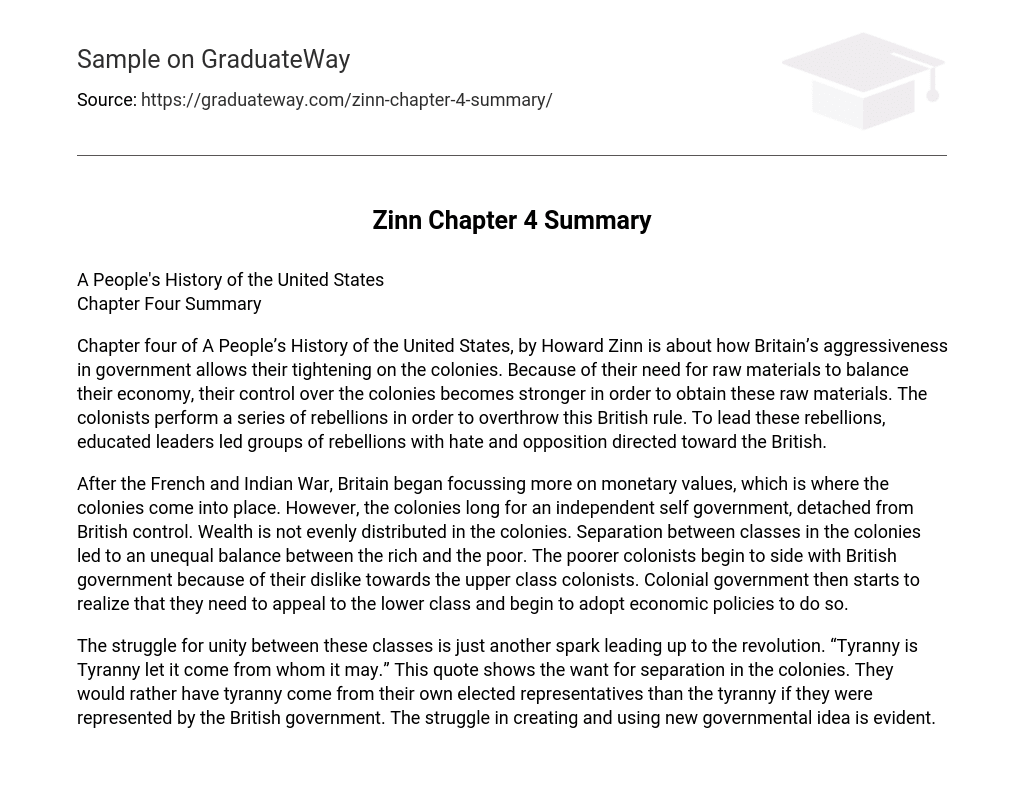A summary of Chapter Four of A People’s History of the United States
Chapter four of A People’s History of the United States, authored by Howard Zinn, examines the interconnectedness between Britain and its colonies. The assertiveness displayed by the British government eventually results in heightened dominion over the colonies owing to their reliance on raw materials. In retaliation against this dominance, the colonists partake in a sequence of uprisings with the goal of toppling British authority. These rebellions are spearheaded by educated leaders who infuse them with an intense animosity and resistance towards the British.
After the French and Indian War, Britain shifted its focus towards monetary values, leading to the emergence of the colonies. Nonetheless, the colonies desire an autonomous self-governance free from British influence. The distribution of wealth within the colonies is uneven, resulting in a disparity between social classes. This disparity causes the poorer colonists to align with British government due to their discontent with the upper-class colonists. Consequently, the colonial government recognizes the necessity of appealing to the lower class and begins implementing economic policies to achieve this.
The fight for unity among these classes is yet another catalyst for the revolution. The quote “Tyranny is Tyranny let it come from whom it may” illustrates the desire for independence in the colonies. They prefer to experience tyranny from their own elected officials rather than under the rule of the British government. The struggle to establish and implement new governmental concepts is apparent.





